| Andrew Arato BA Queens College CUNY (1965), MA and PHD University of Chicago (1968 and 1975) is Dorothy Hirshon Professor in Political and Social Theory at the New School for Social Research, New York. He has taught at the Cooper Union, the Central European University, at Ecole des Hautes etudes, at the Sciences Po and now at the University of Frankfurt where he is Distinguished Fulbright Professor for 2007-2008. He has written on Western Marxist theory, the theory of civil society and democracy, and on democratic transitions in East Central Europe. He is currently specializes in theories of the constituent power, as well as problems of constitution making and emergency regimes. His geographic areas of research have moved from Central Europe to the United States, the Near East and the European Union. He is editor of the journal Constellations. |
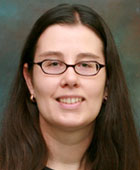 Heli Askola, LLB, LLM (Turku) 2000, PhD (European University Institute, Florence) 2005, is a Senior Lecturer at the Faculty of Law, Monash University, in Melbourne. Before joining Monash in 2008 she worked at Cardiff Law School in the UK, and was, in 2006, a Visiting Scholar at Emory Law School in Atlanta. She has done consulting work for the IOM and the European Commission, and is the author of Legal Responses to Trafficking in Women for Sexual Exploitation in the European Union. (Oxford: Hart Publishing, 2007). Her main areas of teaching and research interest are criminal law, EU law (especially Justice and Home Affairs), migration law, international human rights law and feminist legal theory. Heli Askola, LLB, LLM (Turku) 2000, PhD (European University Institute, Florence) 2005, is a Senior Lecturer at the Faculty of Law, Monash University, in Melbourne. Before joining Monash in 2008 she worked at Cardiff Law School in the UK, and was, in 2006, a Visiting Scholar at Emory Law School in Atlanta. She has done consulting work for the IOM and the European Commission, and is the author of Legal Responses to Trafficking in Women for Sexual Exploitation in the European Union. (Oxford: Hart Publishing, 2007). Her main areas of teaching and research interest are criminal law, EU law (especially Justice and Home Affairs), migration law, international human rights law and feminist legal theory. |
| Aharon Barak, born in Lithuania in 1936, is married and the father of four. He studied law, economics and international relations at the Hebrew University in Jerusalem. Barak received an MA in law in 1958, and a doctorate in 1963. He was appointed Associate Professor of Law at the Hebrew University in 1968 and became Dean of that Faculty in 1974. From 1975-8, he occupied the position of Attorney General of Israel, an appointed and independent position in the Ministry of Justice overseeing the justice system. He was appointed to the Supreme Court of Israel in 1978 and became its President in 1995. His retirement from the Court takes place in September 2006 when he reaches the age of mandatory retirement. He has received number prizes and honours, including the Kaplan Prize for excellence in science and research and the Israel Prize in legal sciences as well as numerous honorary degrees. He is the author of a number of books in Hebrew and in English as well as numerous articles on a wide variety of legal topics. His publications in English include Judicial Discretion, Purposive Interpretation in Law and The Judge in a Democracy, from Princeton University Press. |
| Christine Chinkin LLB (London, 1971); LLM (London, 1972); LLM (Yale, 1981); PhD (Sydney, 1991) is Professor in International Law at the London School of Economics and an overseas affiliated faculty member of the University of Michigan Law School. She was called to the Bar of England and Wales in March 2003 and is a member of Matrix Chambers. She is a specialist in public international law, especially the law of treaties, human rights, with emphasis on the international protection of women's rights, and domestic and international dispute resolution. Her publications include Halsbury's Laws of Australia, Title on Foreign Relations (2nd edition 2001), Third Parties in International Law (1993), Dispute Resolution in Australia (2nd edition 2002 with H Astor), The Boundaries of International Law: A Feminist Analysis (2000 with H. Charlesworth), The Making of International Law (2007, with A. Boyle). She has been a consultant on Public International Law to the Asian Development Bank, to the UN Division on the Advancement of Women and the UN Office of the High Commissioner on Human Rights. In 2006 she was scholar in residence at Amnesty International. |
| Jean Cohen BA 1968 Boston University, MA 1972 New School for Social Research PHD 1979 New School for Social Research. Jean Cohen is Senior Professor of Political Thought at Columbia University. She has taught at University of California, Berkeley and at Bennington College. She has also taught at the Ecole des Hautes Etudes, Sciences Po, and will be giving a distinguished lecture series at the College de France, all in Paris, France. In addition she has taught at the Johann Wolfgang Goethe Universitat in Frankfurt, Germany. She has written on Marxist and post-Marxist critical theory, on the theory of civil society and democracy, on legal paradigms and regulating intimacy, and on sovereignty and international law. Her current project is to write a book on Rethinking Sovereignty, Rights and International Law in the Epoch of Globalization. Her books include Class and Civil Society: the Limits of Marxian Critical Theory 1982; Civil Society and Political Theory (1992; co-authored with Andrew Arato); Regulating Intimacy: a New Legal Paradigm (2002). She is on the editorial board of many journals including Constellations, and Ethics and International Affairs. |
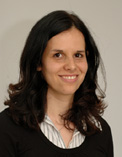 Dr. Talia Fisher is an Assistant Professor at Tel Aviv University, where she teaches evidence law, labor law, and negotiation theory. She earned her LL.B., LL.M., and LL.D. from the Hebrew University, Jerusalem. Her primary research interests include probabilistic applications in procedural law and private supply of legal institutions. Her recent articles include Overcoming Procedural Boundaries, 94 Virginia Law Review (with Issi Rosen-Zvi) and The Boundaries of Plea Bargaining: Negotiating the Standard of Proof, 98 Journal of Criminal Law and Criminology. Dr. Talia Fisher is an Assistant Professor at Tel Aviv University, where she teaches evidence law, labor law, and negotiation theory. She earned her LL.B., LL.M., and LL.D. from the Hebrew University, Jerusalem. Her primary research interests include probabilistic applications in procedural law and private supply of legal institutions. Her recent articles include Overcoming Procedural Boundaries, 94 Virginia Law Review (with Issi Rosen-Zvi) and The Boundaries of Plea Bargaining: Negotiating the Standard of Proof, 98 Journal of Criminal Law and Criminology. |
 Aeyal Gross LLB (magna cum laude) (Tel-Aviv) 1990, SJD (Harvard) 1996, Diploma in Human Rights (European University Institute, Florence) 1998, is a full time tenured faculty member at the Tel -Aviv University Faculty of Law. In 1995 he was an intern with the European Commission on Human Rights. Dr. Gross served on the board of the Association for Civil Rights in Israel. He was also a board member at the Concord Center for the Interplay between International Norms and Israeli Law in the College of Management, and at the Academic Committee of the Minerva Center for Human Rights at Tel-Aviv University. In 2003-6, he taught during the summer term at Columbia University’s School of International and Public Affairs. He was also a fellow with the Stellenbosch Institute for Advanced Studies in South Africa, and, in 2007-9 he is a visiting fellow with the Institute for Advanced Legal Studies at the University of London and teaching as a visitor at SOAS, also at the University in London. In 2009-10 he will be the Global Health and Human Rights fellow at Harvard Law School. Dr. Gross' research interests include international, constitutional, human rights, and humanitarian law; the law of occupation; health rights; sexuality and the law and queer theory, and critical theories of law. He has published and lectured extensively in Israel, Europe, North America, and South Africa. He is most recently the co-editor of Exploring Social Rights (Hart, 2007). Aeyal Gross LLB (magna cum laude) (Tel-Aviv) 1990, SJD (Harvard) 1996, Diploma in Human Rights (European University Institute, Florence) 1998, is a full time tenured faculty member at the Tel -Aviv University Faculty of Law. In 1995 he was an intern with the European Commission on Human Rights. Dr. Gross served on the board of the Association for Civil Rights in Israel. He was also a board member at the Concord Center for the Interplay between International Norms and Israeli Law in the College of Management, and at the Academic Committee of the Minerva Center for Human Rights at Tel-Aviv University. In 2003-6, he taught during the summer term at Columbia University’s School of International and Public Affairs. He was also a fellow with the Stellenbosch Institute for Advanced Studies in South Africa, and, in 2007-9 he is a visiting fellow with the Institute for Advanced Legal Studies at the University of London and teaching as a visitor at SOAS, also at the University in London. In 2009-10 he will be the Global Health and Human Rights fellow at Harvard Law School. Dr. Gross' research interests include international, constitutional, human rights, and humanitarian law; the law of occupation; health rights; sexuality and the law and queer theory, and critical theories of law. He has published and lectured extensively in Israel, Europe, North America, and South Africa. He is most recently the co-editor of Exploring Social Rights (Hart, 2007). |
| Andrew Guzman is Professor of Law and Director of the Graduate Studies Program at Berkeley Law School, at the University of California, Berkeley. Professor Guzman holds a J.D. and Ph.D. (economics) from Harvard University. He has written extensively on international trade, international regulatory matters, foreign direct investment and public international law, and served as editor on the recently published Handbook of International Economic Law (Elgar Publishers) and authored How International Law Works (Oxford University Press). Professor Guzman is a member of the Institute for Transnational Arbitration’s Academic Council and is on the board of several academic journals. Professor Guzman has taught as a visiting professor at Harvard Law School, the University of Chicago Law School, the University of Virginia Law School, Vanderbilt Law School, the University of Hamburg, and the National University Law School in Bangalore, India. |
| Hock Lai Ho, LLB (NUS) 1989, BCL (Oxford) 1993, PhD (Cambridge) 2003, is an Associate Professor at the National University of Singapore. He was called to the Bar of the Supreme Court of Singapore in 1990. He specializes principally in the law and theory of evidence. In 2005, he was a visiting fellow in the Law Program of the Research School of Social Sciences at the Australian National University. His work has been cited by the Australian High Court, the Canadian Supreme Court, the Supreme Court of South Africa, the New Zealand Court of Appeal, the Law Commission of Hong Kong and the Singapore High Court. His latest book is A Philosophy of Evidence Law – Justice in the Search for Truth (OUP, 2008). |
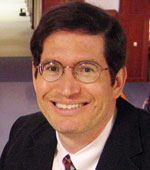 Michael J. Klarman is the James Monroe Distinguished Professor of Law and Professor of History at the University of Virginia. He received his B.A. and M.A. from the University of Pennsylvania, his J.D. from Stanford Law School, and his D. Phil. from the University of Oxford, where he was a Marshall Scholar. After law school, Professor Klarman clerked for the Honorable Ruth Bader Ginsburg. He joined the faculty at the University of Virginia School of Law in 1987 and has won numerous awards for his teaching and scholarship, which are primarily in the areas of Constitutional Law and Constitutional History. Klarman has also served as the Ralph S. Tyler, Jr., Visiting Professor at Harvard Law School, Distinguished Visiting Lee Professor of Law at the Marshall Wythe School of Law at the College of William & Mary, Visiting Professor at Stanford Law School, and Visiting Professor at Yale Law School. His first book, From Jim Crow to Civil Rights: The Supreme Court and the Struggle for Racial Equality, was published by Oxford University Press in 2004 and received the 2005 Bancroft Prize in History. He published two books in the summer of 2007, also with Oxford University Press: Brown v. Board of Education and the Civil Rights Movement and Unfinished Business: Racial Equality in American History, which is part of Oxford’s Inalienable Rights series. Michael J. Klarman is the James Monroe Distinguished Professor of Law and Professor of History at the University of Virginia. He received his B.A. and M.A. from the University of Pennsylvania, his J.D. from Stanford Law School, and his D. Phil. from the University of Oxford, where he was a Marshall Scholar. After law school, Professor Klarman clerked for the Honorable Ruth Bader Ginsburg. He joined the faculty at the University of Virginia School of Law in 1987 and has won numerous awards for his teaching and scholarship, which are primarily in the areas of Constitutional Law and Constitutional History. Klarman has also served as the Ralph S. Tyler, Jr., Visiting Professor at Harvard Law School, Distinguished Visiting Lee Professor of Law at the Marshall Wythe School of Law at the College of William & Mary, Visiting Professor at Stanford Law School, and Visiting Professor at Yale Law School. His first book, From Jim Crow to Civil Rights: The Supreme Court and the Struggle for Racial Equality, was published by Oxford University Press in 2004 and received the 2005 Bancroft Prize in History. He published two books in the summer of 2007, also with Oxford University Press: Brown v. Board of Education and the Civil Rights Movement and Unfinished Business: Racial Equality in American History, which is part of Oxford’s Inalienable Rights series. |
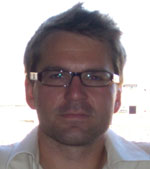 Thomas Poole, LLB (University College London), MStud (University of Oxford), PhD (University of Manchester), is a Senior Lecturer at the Law Department, London School of Economics and Political Science. He taught at the University of Nottingham for six years before joining the LSE in September 2006. Tom has also held Visiting Fellowships at the University of New South Wales, the European University Institute and the University of Melbourne. His main teaching and research interests lie in the field of public law and constitutional theory. His doctoral thesis on common law constitutionalism has been published in a series of articles and he has published articles on Bills of Rights, emergency constitutionalism, administrative law and rights, and various aspects of constitutional and political theory. Thomas Poole, LLB (University College London), MStud (University of Oxford), PhD (University of Manchester), is a Senior Lecturer at the Law Department, London School of Economics and Political Science. He taught at the University of Nottingham for six years before joining the LSE in September 2006. Tom has also held Visiting Fellowships at the University of New South Wales, the European University Institute and the University of Melbourne. His main teaching and research interests lie in the field of public law and constitutional theory. His doctoral thesis on common law constitutionalism has been published in a series of articles and he has published articles on Bills of Rights, emergency constitutionalism, administrative law and rights, and various aspects of constitutional and political theory. |
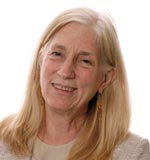 Margaret Jane Radin teaches Contracts, Internet Commerce, Patent, and other courses and seminars dealing with property theory, the interaction between property and contracts, and especially the evolution of property and contract in the digital era. She is the author of two books exploring the problems of propertization, Contested Commodities (Harvard University Press 1996) and Reinterpreting Property (Univ of Chicago Press 1993), as well as co-author of a casebook, Internet Commerce: the Emerging Legal Framework (Foundation Press 2d ed. 2005). Before joining the faculty of the University of Michigan Law School, Professor Radin taught at the University of Southern California and at Stanford University, and she has been a visiting professor at Harvard, UC Berkeley (Boalt Hall), and NYU. During 2006-07 Professor Radin was the inaugural Microsoft Fellow in Law and Public Affairs at Princeton University, where she developed a course in patent law and innovation policy for engineers and students of public policy. Professor Radin received her AB from Stanford, where she majored in music, and her M.F.A. in music history from Brandeis University. She was advanced to candidacy for the Ph.D. in musicology at UC Berkeley before she changed her career path to law and received her J.D. from the University of Southern California in 1976. She remains an avid amateur flutist. Margaret Jane Radin teaches Contracts, Internet Commerce, Patent, and other courses and seminars dealing with property theory, the interaction between property and contracts, and especially the evolution of property and contract in the digital era. She is the author of two books exploring the problems of propertization, Contested Commodities (Harvard University Press 1996) and Reinterpreting Property (Univ of Chicago Press 1993), as well as co-author of a casebook, Internet Commerce: the Emerging Legal Framework (Foundation Press 2d ed. 2005). Before joining the faculty of the University of Michigan Law School, Professor Radin taught at the University of Southern California and at Stanford University, and she has been a visiting professor at Harvard, UC Berkeley (Boalt Hall), and NYU. During 2006-07 Professor Radin was the inaugural Microsoft Fellow in Law and Public Affairs at Princeton University, where she developed a course in patent law and innovation policy for engineers and students of public policy. Professor Radin received her AB from Stanford, where she majored in music, and her M.F.A. in music history from Brandeis University. She was advanced to candidacy for the Ph.D. in musicology at UC Berkeley before she changed her career path to law and received her J.D. from the University of Southern California in 1976. She remains an avid amateur flutist. |
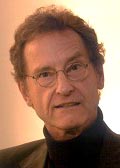 Bernhard Schlink is professor of public law and legal philosophy at Humboldt University in Berlin; from 1988 until 2006 he was also Justice of the Constitutional Law Court of the State of Northrhine-Westfalia in Muenster. He has taught in Freiburg, Bonn, and Frankfurt and teaches regularly at the Benjamin N. Cardozo School of Law in New York. Among his publications are Grundrechte (Fundamental Rights), 1985, 22nd ed. 2006; Polizei- und Ordnungsrecht (Police Law), 2002 4th ed. 2006; Vergangenheitsschuld und gegenwärtiges Recht (Guilt from the Past and Contemporary Law), 2002; Weimar: A Jurisprudence of Crisis, 2nd. ed. 2002. He also writes fiction. Bernhard Schlink is professor of public law and legal philosophy at Humboldt University in Berlin; from 1988 until 2006 he was also Justice of the Constitutional Law Court of the State of Northrhine-Westfalia in Muenster. He has taught in Freiburg, Bonn, and Frankfurt and teaches regularly at the Benjamin N. Cardozo School of Law in New York. Among his publications are Grundrechte (Fundamental Rights), 1985, 22nd ed. 2006; Polizei- und Ordnungsrecht (Police Law), 2002 4th ed. 2006; Vergangenheitsschuld und gegenwärtiges Recht (Guilt from the Past and Contemporary Law), 2002; Weimar: A Jurisprudence of Crisis, 2nd. ed. 2002. He also writes fiction. |
A. W. Brian Simpson, M.A. (Oxford) 1958, D.C.L. (Oxford) 1976, Fellow (Hon) (Lincoln, Oxford) 1995, D.L. (Hon) (Dalhousie) 2003, D.L. (Hon) (Kent) 2003, is the Charles F. and Edith J. Clyne Professor of Law at the University of Michigan Law School. His primary interest is in the historical development of law and legal institutions. He is also an expert on the European Convention and on human rights and frequently speaks on these subjects in Europe and the United States. He has held professorships at the University of Kent, the University of Cambridge, the University of Chicago, and the University of Ghana. He currently teaches Property, English Legal History, and The Boundaries of the Market at the Law School. His books include Human Rights and the End of Empire: Britain and the Genesis of the European Convention; A History of the Common Law of Contract; A Biographical Dictionary of the Common Law; Cannibalism and the Common Law; A History of the Land, Law, Legal Theory and Legal History; In the Highest Degree Odious: Detention Without Trial in Wartime Britain; and Leading Cases in the Common Law. |
| |

 Heli Askola, LLB, LLM (Turku) 2000, PhD (European University Institute, Florence) 2005, is a Senior Lecturer at the Faculty of Law, Monash University, in Melbourne. Before joining Monash in 2008 she worked at Cardiff Law School in the UK, and was, in 2006, a Visiting Scholar at Emory Law School in Atlanta. She has done consulting work for the IOM and the European Commission, and is the author of Legal Responses to Trafficking in Women for Sexual Exploitation in the European Union. (Oxford: Hart Publishing, 2007). Her main areas of teaching and research interest are criminal law, EU law (especially Justice and Home Affairs), migration law, international human rights law and feminist legal theory.
Heli Askola, LLB, LLM (Turku) 2000, PhD (European University Institute, Florence) 2005, is a Senior Lecturer at the Faculty of Law, Monash University, in Melbourne. Before joining Monash in 2008 she worked at Cardiff Law School in the UK, and was, in 2006, a Visiting Scholar at Emory Law School in Atlanta. She has done consulting work for the IOM and the European Commission, and is the author of Legal Responses to Trafficking in Women for Sexual Exploitation in the European Union. (Oxford: Hart Publishing, 2007). Her main areas of teaching and research interest are criminal law, EU law (especially Justice and Home Affairs), migration law, international human rights law and feminist legal theory. Dr. Talia Fisher is an Assistant Professor at Tel Aviv University, where she teaches evidence law, labor law, and negotiation theory. She earned her LL.B., LL.M., and LL.D. from the Hebrew University, Jerusalem. Her primary research interests include probabilistic applications in procedural law and private supply of legal institutions. Her recent articles include Overcoming Procedural Boundaries, 94 Virginia Law Review (with Issi Rosen-Zvi) and The Boundaries of Plea Bargaining: Negotiating the Standard of Proof, 98 Journal of Criminal Law and Criminology.
Dr. Talia Fisher is an Assistant Professor at Tel Aviv University, where she teaches evidence law, labor law, and negotiation theory. She earned her LL.B., LL.M., and LL.D. from the Hebrew University, Jerusalem. Her primary research interests include probabilistic applications in procedural law and private supply of legal institutions. Her recent articles include Overcoming Procedural Boundaries, 94 Virginia Law Review (with Issi Rosen-Zvi) and The Boundaries of Plea Bargaining: Negotiating the Standard of Proof, 98 Journal of Criminal Law and Criminology. Aeyal Gross LLB (magna cum laude) (Tel-Aviv) 1990, SJD (Harvard) 1996, Diploma in Human Rights (European University Institute, Florence) 1998, is a full time tenured faculty member at the Tel -Aviv University Faculty of Law. In 1995 he was an intern with the European Commission on Human Rights. Dr. Gross served on the board of the Association for Civil Rights in Israel. He was also a board member at the Concord Center for the Interplay between International Norms and Israeli Law in the College of Management, and at the Academic Committee of the Minerva Center for Human Rights at Tel-Aviv University. In 2003-6, he taught during the summer term at Columbia University’s School of International and Public Affairs. He was also a fellow with the Stellenbosch Institute for Advanced Studies in South Africa, and, in 2007-9 he is a visiting fellow with the Institute for Advanced Legal Studies at the University of London and teaching as a visitor at SOAS, also at the University in London. In 2009-10 he will be the Global Health and Human Rights fellow at Harvard Law School. Dr. Gross' research interests include international, constitutional, human rights, and humanitarian law; the law of occupation; health rights; sexuality and the law and queer theory, and critical theories of law. He has published and lectured extensively in Israel, Europe, North America, and South Africa. He is most recently the co-editor of Exploring Social Rights (Hart, 2007).
Aeyal Gross LLB (magna cum laude) (Tel-Aviv) 1990, SJD (Harvard) 1996, Diploma in Human Rights (European University Institute, Florence) 1998, is a full time tenured faculty member at the Tel -Aviv University Faculty of Law. In 1995 he was an intern with the European Commission on Human Rights. Dr. Gross served on the board of the Association for Civil Rights in Israel. He was also a board member at the Concord Center for the Interplay between International Norms and Israeli Law in the College of Management, and at the Academic Committee of the Minerva Center for Human Rights at Tel-Aviv University. In 2003-6, he taught during the summer term at Columbia University’s School of International and Public Affairs. He was also a fellow with the Stellenbosch Institute for Advanced Studies in South Africa, and, in 2007-9 he is a visiting fellow with the Institute for Advanced Legal Studies at the University of London and teaching as a visitor at SOAS, also at the University in London. In 2009-10 he will be the Global Health and Human Rights fellow at Harvard Law School. Dr. Gross' research interests include international, constitutional, human rights, and humanitarian law; the law of occupation; health rights; sexuality and the law and queer theory, and critical theories of law. He has published and lectured extensively in Israel, Europe, North America, and South Africa. He is most recently the co-editor of Exploring Social Rights (Hart, 2007). Michael J. Klarman is the James Monroe Distinguished Professor of Law and Professor of History at the University of Virginia. He received his B.A. and M.A. from the University of Pennsylvania, his J.D. from Stanford Law School, and his D. Phil. from the University of Oxford, where he was a Marshall Scholar. After law school, Professor Klarman clerked for the Honorable Ruth Bader Ginsburg. He joined the faculty at the University of Virginia School of Law in 1987 and has won numerous awards for his teaching and scholarship, which are primarily in the areas of Constitutional Law and Constitutional History. Klarman has also served as the Ralph S. Tyler, Jr., Visiting Professor at Harvard Law School, Distinguished Visiting Lee Professor of Law at the Marshall Wythe School of Law at the College of William & Mary, Visiting Professor at Stanford Law School, and Visiting Professor at Yale Law School. His first book, From Jim Crow to Civil Rights: The Supreme Court and the Struggle for Racial Equality, was published by Oxford University Press in 2004 and received the 2005 Bancroft Prize in History. He published two books in the summer of 2007, also with Oxford University Press: Brown v. Board of Education and the Civil Rights Movement and Unfinished Business: Racial Equality in American History, which is part of Oxford’s Inalienable Rights series.
Michael J. Klarman is the James Monroe Distinguished Professor of Law and Professor of History at the University of Virginia. He received his B.A. and M.A. from the University of Pennsylvania, his J.D. from Stanford Law School, and his D. Phil. from the University of Oxford, where he was a Marshall Scholar. After law school, Professor Klarman clerked for the Honorable Ruth Bader Ginsburg. He joined the faculty at the University of Virginia School of Law in 1987 and has won numerous awards for his teaching and scholarship, which are primarily in the areas of Constitutional Law and Constitutional History. Klarman has also served as the Ralph S. Tyler, Jr., Visiting Professor at Harvard Law School, Distinguished Visiting Lee Professor of Law at the Marshall Wythe School of Law at the College of William & Mary, Visiting Professor at Stanford Law School, and Visiting Professor at Yale Law School. His first book, From Jim Crow to Civil Rights: The Supreme Court and the Struggle for Racial Equality, was published by Oxford University Press in 2004 and received the 2005 Bancroft Prize in History. He published two books in the summer of 2007, also with Oxford University Press: Brown v. Board of Education and the Civil Rights Movement and Unfinished Business: Racial Equality in American History, which is part of Oxford’s Inalienable Rights series. Thomas Poole, LLB (University College London), MStud (University of Oxford), PhD (University of Manchester), is a Senior Lecturer at the Law Department, London School of Economics and Political Science. He taught at the University of Nottingham for six years before joining the LSE in September 2006. Tom has also held Visiting Fellowships at the University of New South Wales, the European University Institute and the University of Melbourne. His main teaching and research interests lie in the field of public law and constitutional theory. His doctoral thesis on common law constitutionalism has been published in a series of articles and he has published articles on Bills of Rights, emergency constitutionalism, administrative law and rights, and various aspects of constitutional and political theory.
Thomas Poole, LLB (University College London), MStud (University of Oxford), PhD (University of Manchester), is a Senior Lecturer at the Law Department, London School of Economics and Political Science. He taught at the University of Nottingham for six years before joining the LSE in September 2006. Tom has also held Visiting Fellowships at the University of New South Wales, the European University Institute and the University of Melbourne. His main teaching and research interests lie in the field of public law and constitutional theory. His doctoral thesis on common law constitutionalism has been published in a series of articles and he has published articles on Bills of Rights, emergency constitutionalism, administrative law and rights, and various aspects of constitutional and political theory. Margaret Jane Radin teaches Contracts, Internet Commerce, Patent, and other courses and seminars dealing with property theory, the interaction between property and contracts, and especially the evolution of property and contract in the digital era. She is the author of two books exploring the problems of propertization, Contested Commodities (Harvard University Press 1996) and Reinterpreting Property (Univ of Chicago Press 1993), as well as co-author of a casebook, Internet Commerce: the Emerging Legal Framework (Foundation Press 2d ed. 2005). Before joining the faculty of the University of Michigan Law School, Professor Radin taught at the University of Southern California and at Stanford University, and she has been a visiting professor at Harvard, UC Berkeley (Boalt Hall), and NYU. During 2006-07 Professor Radin was the inaugural Microsoft Fellow in Law and Public Affairs at Princeton University, where she developed a course in patent law and innovation policy for engineers and students of public policy. Professor Radin received her AB from Stanford, where she majored in music, and her M.F.A. in music history from Brandeis University. She was advanced to candidacy for the Ph.D. in musicology at UC Berkeley before she changed her career path to law and received her J.D. from the University of Southern California in 1976. She remains an avid amateur flutist.
Margaret Jane Radin teaches Contracts, Internet Commerce, Patent, and other courses and seminars dealing with property theory, the interaction between property and contracts, and especially the evolution of property and contract in the digital era. She is the author of two books exploring the problems of propertization, Contested Commodities (Harvard University Press 1996) and Reinterpreting Property (Univ of Chicago Press 1993), as well as co-author of a casebook, Internet Commerce: the Emerging Legal Framework (Foundation Press 2d ed. 2005). Before joining the faculty of the University of Michigan Law School, Professor Radin taught at the University of Southern California and at Stanford University, and she has been a visiting professor at Harvard, UC Berkeley (Boalt Hall), and NYU. During 2006-07 Professor Radin was the inaugural Microsoft Fellow in Law and Public Affairs at Princeton University, where she developed a course in patent law and innovation policy for engineers and students of public policy. Professor Radin received her AB from Stanford, where she majored in music, and her M.F.A. in music history from Brandeis University. She was advanced to candidacy for the Ph.D. in musicology at UC Berkeley before she changed her career path to law and received her J.D. from the University of Southern California in 1976. She remains an avid amateur flutist. Bernhard Schlink is professor of public law and legal philosophy at Humboldt University in Berlin; from 1988 until 2006 he was also Justice of the Constitutional Law Court of the State of Northrhine-Westfalia in Muenster. He has taught in Freiburg, Bonn, and Frankfurt and teaches regularly at the Benjamin N. Cardozo School of Law in New York. Among his publications are Grundrechte (Fundamental Rights), 1985, 22nd ed. 2006; Polizei- und Ordnungsrecht (Police Law), 2002 4th ed. 2006; Vergangenheitsschuld und gegenwärtiges Recht (Guilt from the Past and Contemporary Law), 2002; Weimar: A Jurisprudence of Crisis, 2nd. ed. 2002. He also writes fiction.
Bernhard Schlink is professor of public law and legal philosophy at Humboldt University in Berlin; from 1988 until 2006 he was also Justice of the Constitutional Law Court of the State of Northrhine-Westfalia in Muenster. He has taught in Freiburg, Bonn, and Frankfurt and teaches regularly at the Benjamin N. Cardozo School of Law in New York. Among his publications are Grundrechte (Fundamental Rights), 1985, 22nd ed. 2006; Polizei- und Ordnungsrecht (Police Law), 2002 4th ed. 2006; Vergangenheitsschuld und gegenwärtiges Recht (Guilt from the Past and Contemporary Law), 2002; Weimar: A Jurisprudence of Crisis, 2nd. ed. 2002. He also writes fiction.